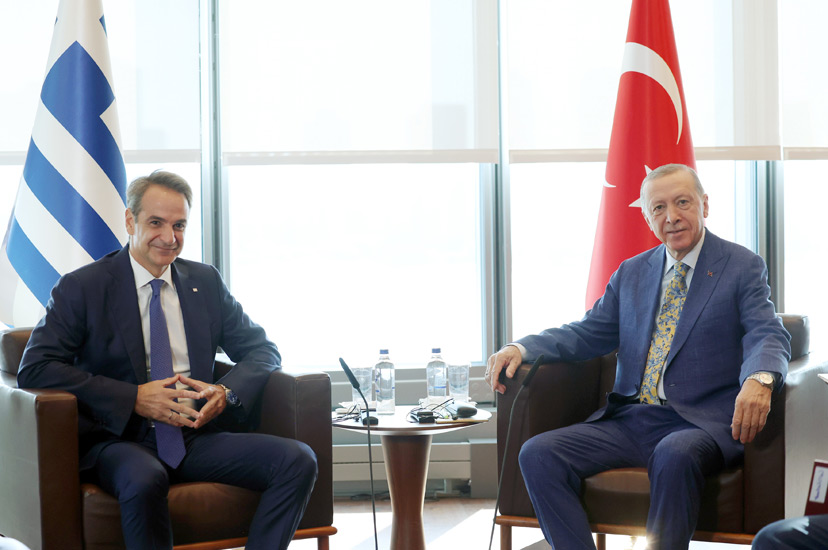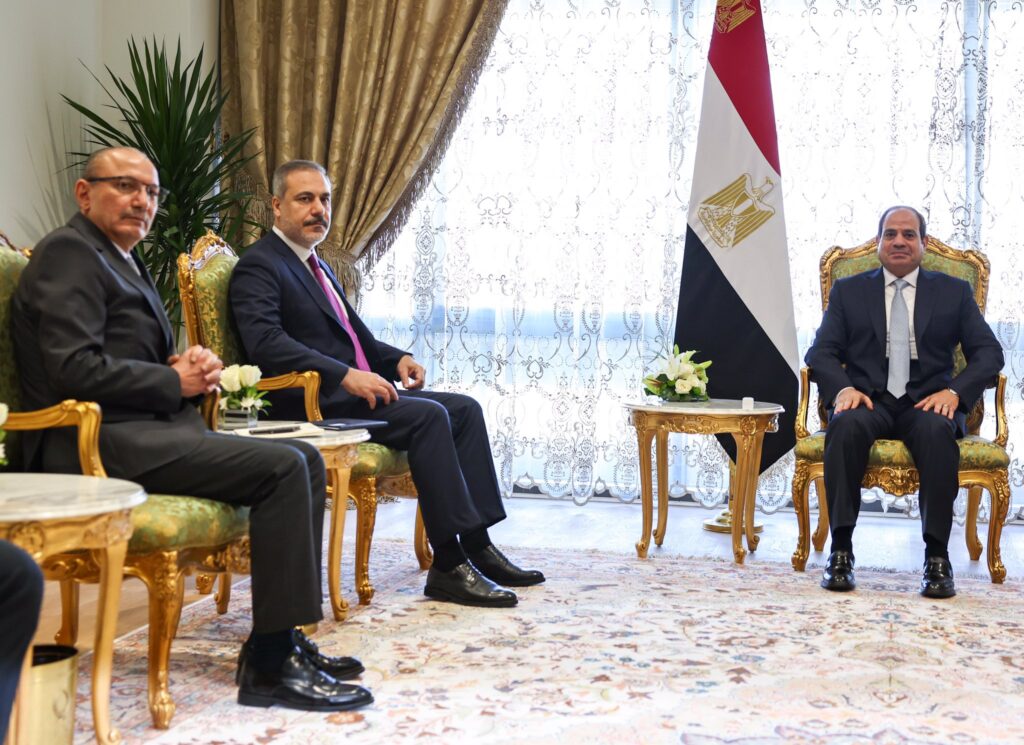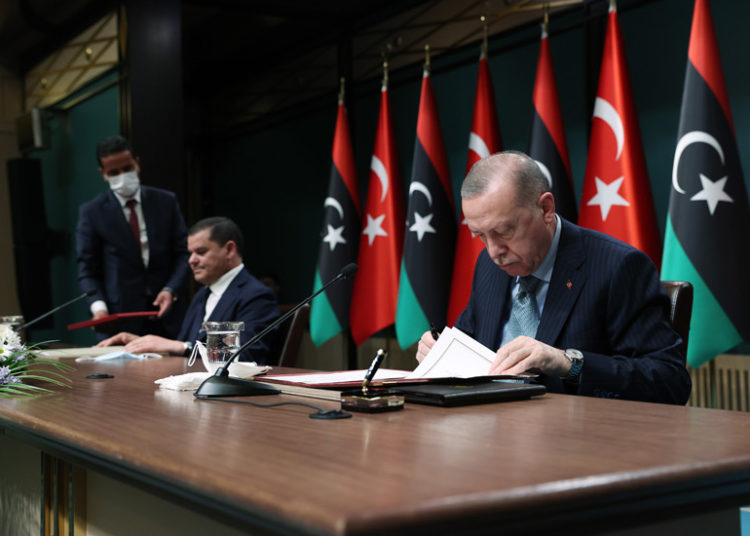Levent Kenez/Stockholm
The Turkish Parliament has re-examined a series of unratified international agreements from the previous legislative year, among which is a memorandum of understanding (MoU) signed on October 3, 2022 between Turkey and Libya concerning cooperation in the field of hydrocarbons in the North African country. This agreement had previously garnered strong reactions from both Greece and Egypt.
On June 6, 2023 it came to light that the agreement, resubmitted to parliament by President Recep Tayyip Erdogan for the completion of legislative procedures, was referred to committee by the speaker of the house the same week.
Nordic Monitor previously reported that the agreement aims to promote cooperation between state-owned oil and gas companies for the exploitation of hydrocarbon resources in Libya. The four-page agreement covers both existing and future hydrocarbon fields, raising concerns of ambiguity. Critics argued that the agreement also poses legal and sovereignty concerns, particularly concerning the 2019 agreement between Turkey and the former Libyan Government of National Accord on the delimitation of maritime borders and its potential impact on the eastern Mediterranean.
While the recent MoU did not explicitly mention the 2019 agreement, its preamble indirectly evoked the previous accord. It stated that both nations are cognizant of the potential for such cooperation to enhance bilateral relations and expressed a desire to further develop their existing ties in the realm of hydrocarbons.
In the past, harsh criticism of the agreement was voiced by Egypt and Greece. They argued that the MoU signified a concerning escalation by Turkey aimed at destabilizing the eastern Mediterranean and that it represented a continuation of the 2019 agreement, which they believe violated international law. Athens and Cairo claimed this also infringed on their sovereign rights established in an August 2020 agreement that delineated exclusive economic zone boundaries. The 2020 agreement included areas with overlapping claims by Turkey and Libya, which were initially outlined in the 2019 deal. It is important to note that these statements were made independent of the content of the agreement since the specifics of the MoU remained undisclosed.
In a joint letter to the United Nations in December 2022, Turkey and Libya denounced Greece’s objections to their agreements on hydrocarbon and maritime boundaries, asserting that the accords fully complied with international law and stressing that Greece’s claims violated their sovereign rights. The letter called on Greece to abandon its unfounded allegations and hostile rhetoric, urging respect for their sovereignty and decisions and an end to measures that escalate tensions in the Mediterranean.

The MoU, originally expected to be ratified in the Turkish Parliament in January was surprisingly postponed, influenced by Ankara’s desire to avoid triggering a new crisis with the European Union. Turkey has been keeping its drill ships in its territorial waters since 2020 to ease tensions with the EU.
Turkey also intends to de-escalate tensions with Greece, which had drawn reactions due to its oil exploration vessels operating in disputed waters in the Aegean and eastern Mediterranean. During the United Nations General Assembly in New York in September, President Erdogan and Greek Prime Minister Kyriakos Mitsotakis held discussions, and a decision was made to increase dialogue. It was announced that Erdogan would visit Thessaloniki in November. The Turkish side emphasized the importance of progress on issues related to energy pipelines in the eastern Mediterranean and the significance of both countries benefiting economically from these resources.
On October 4, during a press conference with the foreign minister of the Turkish Republic of Northern Cyprus (KKTC), Turkish Foreign Minister Hakan Fidan said both the Turkish and Greek sides should utilize the energy resources in the eastern Mediterranean without the need to await a political resolution to the long-standing Cyprus issue between them.
Meanwhile, efforts to improve relations between Turkey and Egypt have been ongoing for some time now. Following a friendly handshake between President Erdogan and Egyptian President Abdel Fattah el-Sisi during the FIFA World Cup in Qatar in November 2022, a series of significant steps were taken.
These developments began with high-level talks at the foreign ministers’ level and continued with measures to facilitate Egyptian visa acquisition for Turkish citizens in April, gaining further momentum after the re-election of Erdogan in May. In July Turkey and Egypt achieved a breakthrough by elevating their diplomatic ties to the ambassadorial level, marking a reconciliation after a decade-long hiatus

Fidan was received by Egyptian President el-Sisi in Cairo on Saturday as part of discussions aimed at brokering a ceasefire in the wake of Hamas’s terrorist attacks on Israel and the latter’s strong response to Gaza, which also resulted in the death of hundreds of civilians.
The MoU is expected to be on the agenda at the first meeting of the parliamentary Foreign Affairs Committee and will soon be referred to the floor for approval. The absence of a reference to the controversial 2019 maritime agreement in the 2022 MoU between Turkey and Libya could potentially prevent the emergence of a new crisis among Turkey, Greece, Egypt and the European Union.












